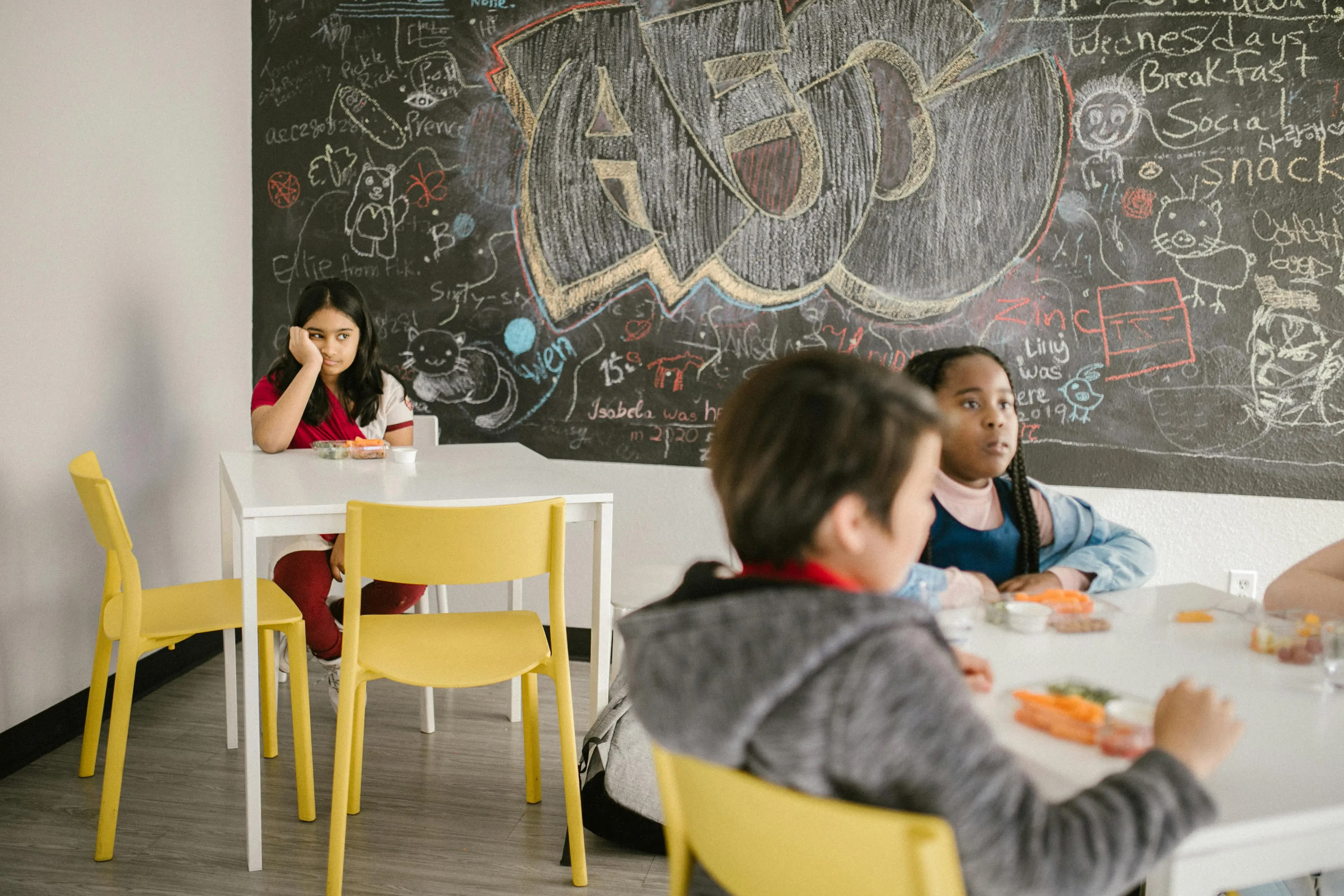Key Takeaways:
- Autistic individuals often experience and express love and connection in ways that can differ from neurotypical expectations.
- Communication for autistic people in relationships tends to be direct and literal; understanding nonverbal cues can sometimes be a challenge.
- Emotional expression might be different, with some autistic individuals finding it easier to show affection through actions or shared interests rather than overt verbal or physical displays.
- Sensory sensitivities can play a significant role in comfort levels with physical touch, environments, and shared spaces.
- Strong interests and a preference for routines are common in autism and can be integral parts of an autistic person's life and relationships.
- Honesty, clarity, and acceptance are often highly valued by autistic individuals in their romantic partnerships.
- Misunderstandings can arise due to differences in communication styles and social interpretation (often referred to as the "double empathy problem"), but these can be navigated with effort from both partners.
- Support, including autism-informed therapy and autism assessments, can be beneficial for autistic individuals and their partners.

Romantic relationships are a complex dance of communication, emotion, and shared experience for everyone. For individuals on the autism spectrum, this dance may follow different steps and rhythms. Understanding these differences is key not just for autistic individuals themselves, but also for their partners and for fostering a more inclusive understanding of love and connection in society. Autism is a form of neurodivergence, meaning the brain processes information in a unique way. This uniqueness shapes how autistic people perceive the world, interact with others, and, consequently, how they approach and experience romantic relationships. It's important to remember that autism is a spectrum, and experiences can vary widely from one person to another. Some autistic individuals may also have co-occurring conditions like ADHD, which can further influence relationship dynamics, a topic explored in resources like Understanding AuDHD: The Co-occurrence of Autism and ADHD. The way autistic individuals form bonds, express affection, and navigate the intricacies of partnership can be distinct, often characterized by a deep sense of loyalty, honesty, and a unique perspective that can enrich a relationship. These differences are not deficiencies but rather variations in the human experience of love.
How Is Communication Different for Autistic Individuals in Relationships?
What does clear communication look like in a relationship, and how might this understanding differ for an autistic individual? Many autistic people tend to communicate in a very direct and honest manner. They might say exactly what they mean and expect others to do the same. This preference for explicitness can be a great strength, leading to less ambiguity and fewer mind games in a relationship. However, it can sometimes be misinterpreted by neurotypical partners who are more accustomed to indirect communication, subtle hints, or reading between the lines. An autistic partner might not automatically pick up on unspoken cues, shifts in tone, or body language that a neurotypical person relies on to gauge another's feelings or intentions. This isn't due to a lack of care, but rather a difference in processing social information.
This difference is central to what's known as The Double Empathy Problem: Why Miscommunication Between Autistics and Neurotypicals Happens. This concept suggests that communication breakdowns between autistic and non-autistic people are not solely due to autistic differences, but are a mutual misunderstanding where both parties struggle to understand the other's perspective and communication style. For instance, an autistic person might miss a sarcastic comment's intended humor because they process language more literally. Conversely, a neurotypical person might misinterpret an autistic person's directness as rudeness or a lack of tact when no offense was intended. Building strong relationships often involves both partners making an effort to understand and adapt to each other's communication styles, fostering an environment of patience and explicit clarification. Open conversations about communication preferences can be incredibly helpful, allowing both individuals to express their needs and learn how to best connect with one another.
Navigating Emotional Expression and Connection: An Autistic Perspective
How do autistic individuals show they care, and how might they perceive affection from a partner? The landscape of emotional expression and connection can look quite varied for autistic people. While deep and intense emotions are certainly felt, the way these emotions are outwardly expressed or how connection is demonstrated might not always align with conventional expectations. Some autistic individuals may experience alexithymia, which is a difficulty in identifying and describing one's own emotions. This doesn't mean they don't feel; rather, they might struggle to put words to their internal emotional state or recognize subtle emotional shifts in themselves or others. Consequently, grand romantic gestures or effusive verbal declarations of love might not be their primary mode of expression.
Instead, affection might be shown in more practical or action-oriented ways. This could include:
- Devoting time to a shared interest: Engaging deeply in a partner's hobby or sharing their own passions.
- Acts of service: Helping with tasks, problem-solving, or creating something useful for their partner.
- Loyalty and consistency: Being a steadfast and reliable presence in their partner's life.
- Sharing information: Offering detailed knowledge on topics they are passionate about as a way of connecting. Understanding these unique ways of showing love is crucial. Different attachment styles also play a role in how individuals give and receive affection. For an autistic person, feeling understood and accepted for their way of connecting can foster a secure attachment style, building healthy relationships. It requires partners to look beyond traditional markers of affection and appreciate the diverse ways love can be communicated and felt. Recognizing these different forms of emotional labor and connection can strengthen the bond between partners significantly.
The Role of Sensory Sensitivities in Intimacy and Closeness
Could the texture of a blanket or the brightness of a light impact how an autistic person experiences intimacy? Absolutely. Sensory sensitivities are a common aspect of autism, where an individual might be over-sensitive (hyper-reactive) or under-sensitive (hypo-reactive) to various sensory inputs like touch, sound, light, smell, or taste. These sensitivities can profoundly influence comfort levels with physical intimacy, the choice of dating environments, and even how shared living spaces are arranged. For example, a person who is hypersensitive to touch might find certain types of caresses or fabrics overwhelming or even painful, while someone hyposensitive might seek out deep pressure or intense sensations to feel connected. The hum of fluorescent lights or a strong perfume, often unnoticeable to a neurotypical person, could be a source of significant distress or anxiety for an autistic individual, making certain environments for dates or quiet evenings at home challenging.
Understanding and accommodating these sensory needs is vital for a comfortable and fulfilling romantic and intimate life. This might involve:
- Open discussion: Talking about specific sensory triggers and preferences.
- Modifying environments: Dimming lights, choosing quieter date spots, using unscented products.
- Adjusting physical touch: Finding out what types of touch feel good and which are uncomfortable or distressing. This could mean preferring firm hugs over light touches, or needing to initiate touch themselves. While some resources discuss sensory processing in the context of other neurodivergencies, such as The Link Between ADHD and Sensory Processing: How to Manage Sensory Overload, the core principles of identifying triggers and finding strategies for management are broadly applicable. For autistic individuals, creating a sensory-friendly environment with their partner allows for greater ease, reduces potential overwhelm, and makes space for genuine connection and intimacy to flourish without the barrier of sensory discomfort.
Special Interests and Routines: Impact on Relationship Dynamics
Why might an autistic individual dedicate hours to a specific hobby, and how does this fit into a romantic partnership? Special interests and a preference for routines are hallmark characteristics of autism, offering a sense of joy, expertise, and predictability in a world that can often feel chaotic. Special interests are not mere hobbies; they are often intense areas of focus that provide deep satisfaction and can be a significant part of an autistic person's identity. Sharing these interests can be a major way an autistic person connects with a partner. They might want to talk about their interest in depth or engage in activities related to it with their loved one. Supporting these interests, even if not fully sharing them, can mean a lot to an autistic partner. It's a way of showing acceptance and understanding of what brings them joy and fulfillment. Finding ways to harness these strengths without burning out, as explored in Autism and Hyperfocus, can be beneficial.
Routines also play a crucial role in providing structure and reducing anxiety. An autistic individual might have specific ways of doing things or a set daily or weekly schedule that helps them feel secure and manage their energy. Deviations from these routines can be unsettling or even distressing. In a relationship, this means that spontaneity might need to be planned, or changes discussed well in advance. This doesn't mean an autistic person is inflexible, but rather that predictability helps them navigate the world more comfortably. It is also important to consider the energy expenditure involved in deviating from routines or masking autistic traits, a topic touched upon in Masking vs. Authenticity: The Cost of Social Camouflage for Autistic Adults. A partner who respects and understands the need for routine, and who works collaboratively to integrate their lives, helps create a stable and supportive relationship.
Building Strong Foundations: Honesty, Acceptance, and Predictability
What are the core pillars that help a romantic relationship thrive when one or both partners are autistic? While every relationship is unique, for many autistic individuals, the cornerstones of a strong partnership often include profound honesty, genuine acceptance, and a comfortable level of predictability. Autistic people frequently value directness and transparency. They may have a low tolerance for ambiguity or disingenuousness, preferring clear, straightforward communication about thoughts, feelings, and intentions. This inclination towards honesty can foster a deep level of trust when reciprocated. Acceptance is equally vital. This means a partner embraces the autistic individual for who they are, including their unique ways of thinking, communicating, and experiencing the world, without trying to change their core traits. This creates a safe space where the autistic person can be their authentic self.
Predictability, often linked to routines and clear expectations, helps to reduce anxiety and create a sense of security. Knowing what to expect in daily interactions, social situations, or how a partner might react can be very comforting. This doesn't mean life must be rigid, but that major changes are discussed and a general sense of reliability exists within the relationship. Tools and concepts like Building Strong Love Maps in Your Relationship, which involves truly knowing your partner's inner world, are exceptionally relevant here. Furthermore, understanding the 7 Essential Steps to a Healthier Relationship: Insights from The Sound Relationship House can provide a framework that aligns well with these needs for clarity, trust, and mutual understanding. When these elements are present, autistic individuals can feel deeply secure and valued, allowing for a robust and meaningful connection to develop.
Overcoming Challenges and Misunderstandings in Neurodiverse Relationships
What happens when differences in communication or social understanding lead to friction in a relationship involving an autistic partner? Misunderstandings are common in any relationship, but in neurodiverse relationships—where one partner is autistic and the other is neurotypical, or both partners are neurodivergent in different ways—these can sometimes be more frequent or profound if not addressed with awareness. For instance, an autistic partner's need for alone time to decompress might be misinterpreted by a neurotypical partner as rejection or lack of interest. Conversely, a neurotypical partner's use of sarcasm or indirect hints might leave an autistic partner confused or feeling misled. Recognizing some of the 4 Early Warning Signs of Relationship Strain can be helpful for both individuals.
Strategies for navigating these challenges include:
- Explicit Communication: Both partners committing to saying what they mean clearly and asking for clarification when unsure.
- Patience and Empathy: Trying to understand the other's perspective, even if it differs greatly from one's own.
- Education: Learning about autism (for the non-autistic partner) and about neurotypical social cues (for the autistic partner, if they choose) can bridge gaps.
- Setting Clear Boundaries and Expectations: Discussing needs around social interaction, personal space, and communication openly.
- Seeking Professional Support: Understanding how couples therapy can strengthen your relationship can be a proactive step. Therapists familiar with autism can provide tailored strategies. Even Seattle Individual Psychotherapy can help individuals develop coping mechanisms and communication skills. Success in a neurodiverse relationship often comes down to mutual respect, a willingness to learn, and a commitment to finding what works for that specific partnership, rather than adhering to preconceived notions of how a relationship "should" be.
Support Systems: Therapy, Assessments, and Community for Autistic Individuals and Couples
Where can autistic individuals and their partners turn for understanding and guidance in their relationships? Navigating romantic relationships can be rewarding, and for autistic individuals and neurodiverse couples, having the right support systems can make a significant difference. Self-understanding is a powerful first step. For some, this might involve pursuing an Autism Assessment in Seattle or elsewhere, which can provide clarity and validation, leading to a better understanding of one's own needs and how they manifest in relationships. This formal or informal process of self-discovery can be empowering. Therapy, especially with professionals experienced in autism and neurodiversity, offers a space to explore relationship dynamics, communication strategies, and emotional understanding. This can be beneficial for the autistic individual, their partner, or for them as a couple. Organizations like the Relational Psych Group offer various services that cater to neurodivergent individuals and couples.
Beyond professional help, community support is invaluable. Connecting with other autistic individuals or neurodiverse couples can reduce feelings of isolation and provide a space for shared experiences and advice. Online forums, local support groups, and social media communities dedicated to autism and relationships can be great resources. Learning from others who have similar experiences can offer practical tips and emotional validation. For partners of autistic individuals, connecting with other partners can also provide insights and support. If you're looking for support, you can always Contact Me to discuss options and find resources. Building a network of understanding and affirming support helps create a foundation for healthier, happier relationships.
Frequently Asked Questions (FAQs)
Do autistic people want romantic relationships?
Yes, many autistic people desire and engage in romantic relationships, just like neurotypical people. The desire for connection, love, and companionship is a human experience that varies from individual to individual, regardless of neurotype. Some autistic people may be aromantic (experiencing little or no romantic attraction) or asexual (experiencing little or no sexual attraction), but this is also true of the non-autistic population.
How can I be a better partner to an autistic person?
Listen actively, communicate clearly and directly, be patient, and educate yourself about autism. Ask your partner about their specific needs, preferences, and communication style. Respect their need for routine or alone time, and show interest in their special interests. Acceptance and a willingness to adapt are key.
Is it true that autistic people lack empathy?
This is a common misconception. Autistic people can feel empathy very deeply. They might, however, express empathy differently or have difficulty understanding or responding to others' emotional cues in conventional ways (this is sometimes referred to as "affective empathy" vs. "cognitive empathy"). The "double empathy problem" suggests misunderstandings are often mutual.
How do sensory sensitivities affect dating for autistic people?
Sensory sensitivities can make typical dating environments (like loud bars, crowded restaurants, or places with strong smells) overwhelming. Autistic individuals might prefer quieter, more controlled environments or activities that align with their sensory comfort levels. Open communication about sensory needs is important when planning dates.
Can autistic people have successful long-term relationships?
Absolutely. Autistic individuals are capable of forming deep, loving, and lasting relationships. Success in any relationship depends on mutual understanding, respect, communication, and effort from both partners. Neurodiverse relationships can be incredibly rewarding, offering unique strengths and perspectives.
Where can I find therapists who understand autism and relationships?
Look for therapists or counseling services that specialize in autism or neurodiversity. You can search online directories, ask for recommendations from autism advocacy groups, or consult with organizations like the Relational Psych Group that list specialties. It's important to find a therapist who is affirming and knowledgeable.
Sources
- American Psychiatric Association. (2013). Diagnostic and statistical manual of mental disorders (5th ed.). Arlington, VA: American Psychiatric Publishing.
- Attwood, T. (2007). The Complete Guide to Asperger's Syndrome. Jessica Kingsley Publishers.
- Baron-Cohen, S. (2003). The Essential Difference: Male and Female Brains and the Truth about Autism. Basic Books.
- Milton, D. E. M. (2012). On the ontological status of autism: the ‘double empathy problem’. Disability & Society, 27(6), 883-887.
- National Institute of Mental Health. (n.d.). Autism Spectrum Disorder. Retrieved from https://www.nimh.nih.gov/health/topics/autism-spectrum-disorders-asd
- Gottman, J. M., & Silver, N. (2015). The Seven Principles for Making Marriage Work: A Practical Guide from the Country's Foremost Relationship Expert. Harmony. (While not autism-specific, principles of communication and understanding are broadly applicable).





